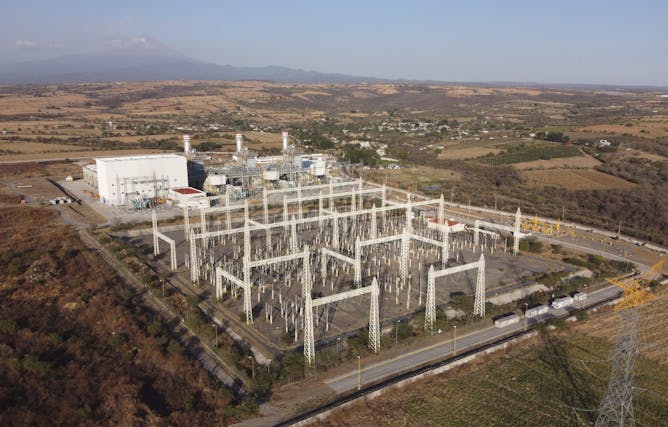|
Computer models suggest we could see more than 250,000 deaths in a single year. Those calculations have nothing to do with the ongoing coronavirus pandemic, but reflect the number of additional deaths expected per year from malnutrition, malaria, diarrhea and heat stress — all the result of climate change.
Experts have sounded the alarm on both COVID-19 and climate change. As airlines cancel routes and businesses shutter their physical offices, we’re already seeing individuals and governments take decisive action on one disaster. Why not the other?
Today in The Conversation Canada, Eric Galbraith and Ross Otto of McGill University explain why people — and governments — have reacted differently to these two threats. But they also spot a glimmer of hope: “The policy changes required to mitigate climate change appear far less disruptive — economically, socially and culturally — than the measures being taken right now to tackle COVID-19.”
Also today:
Regards,
|

A highway exchange stands empty of traffic after the government implemented restrictions to prevent the spread of the new coronavirus in Lima, Peru, on March 18, 2020. Does the global response to COVID-19 suggest there’s hope for climate action?
AP Photo/Rodrigo Abd
Eric Galbraith, McGill University; Ross Otto, McGill University
The policy response to COVID-19 has been dramatic, unlike the response to climate change, for several reasons. But it shows there's hope for real action on climate change.
|

Canada’s announcements about its border have not left international students with a sense of security.
(Shutterstock)
Carlo Handy Charles, McMaster University
Canada's decisions about its border closures prompt us to reflect on how we should apply measures of social distancing that are not harmful to others and that still protect human dignity.
|

A newly built power generation plant is seen near Huexca, Mexico, in February 2020. The power plant is part of a mega-energy project that includes a natural gas pipeline that traverses three states.
AP Photo/Eduardo Verdugo
Anna Zalik, York University, Canada
The behaviour of TC Energy, the company formerly known as TransCanada, in Wet'suwet'en resulted in a nationwide crisis in Canada. It should not be repeated in Mexico.
|

Robotic pets could increasingly provide social companionship and health monitoring in elder care.
(Shutterstock)
L.F. Carver, Queen's University, Ontario
Older adults are using social robots and apps, but what does it mean for issues of surveillance and privacy?
|

Un tsunami d’informations déferle, sans que l’on puisse prendre le recul nécessaire pour en faire l'analyse.
shutterstock
Luc Bonneville, L’Université d’Ottawa/University of Ottawa
Les nouvelles sur la Covid-19 tournent en boucle, sans permettre le recul nécessaire pour les analyser. Il faut s'interroger sur leur potentiel d'amplifier la panique dans la population.
|
COVID-19
|
-
Parastou Donyai, University of Reading
There is currently no evidence showing it makes COVID-19 symptoms worse.
-
Jung Won Sonn, UCL
South Korea's COVID-19 testing programme relies on what many would call privacy invasions.
-
Alex De Waal, Tufts University
Usually when a leader handles a crisis poorly, it's politically costly. But President Trump's mishandling of the coronavirus crisis is not likely to hurt him, says an expert on health crises.
|
|